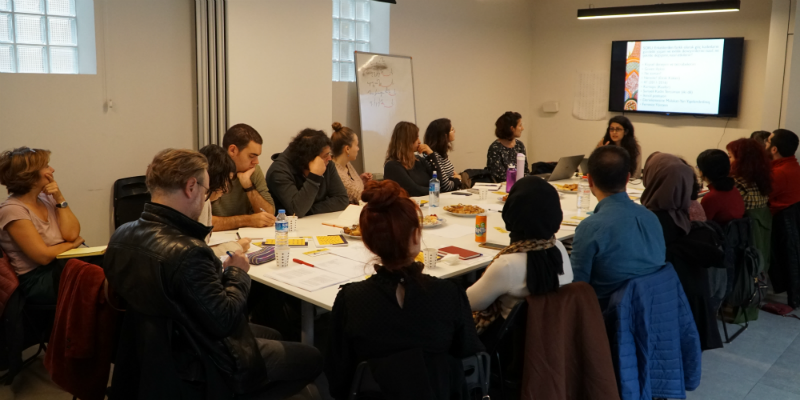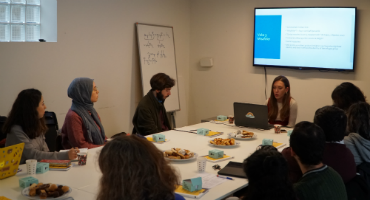Organized by ASULIS Discourse, Dialog and Democracy Laboratory of Hrant Dink Foundation, three researches on migration experiences were discussed in the third session of the series “Asulis Social Sciences Grad Students Workshops”. The workshop was held in Hrant Dink Foundation Anarad Hığutyun Building on November 27.
ASULIS aims to encourage pluralism, the ideal of coexistence and future researchers who will carry out new studies in this field. Organized with this purpose, the workshops aims to enable the discussion of master theses, facilitating dialog between researchers studying this topic and making academics and researchers come together.
Firstly, Seda Günel Yılmaz’s master thesis, which she submitted to Mardin Artuklu University Department of Sociology in 2017, with the title “A Feminist Methodology in International Forced Migration Studies: The Experience of Syrian Women in Mardin” was discussed. Yılmaz reviewed how migration affects women’s daily life and marriage experience unlike men on the basis of in-depth interviews that she conducted with 47 women in Mardin. Examining women’s daily life experiences after migration, Yılmaz pointed out that pre-migration gender inequalities continue as they are and while gender-based division of labor results in exploitation, control of the extended family and tribe is diminished. Emphasizing that migration is a gendered experience, Yılmaz claimed that services should be provided in consideration with gender. Assoc. Prof. Ulaş Sunata Özdemir from Bahçeşir University Department of Sociology assessed Yılmaz’s thesis. She pointed out a feminist methodology requires a participatory method and an ethnographic field study is necessary.
Secondly, Ceren Ataş’s master thesis, which she submitted to Bilgi University Department of Cultural Studies in 2018, with the title “Migration from Anatolia to London: The Alevi Practices of Alevi Women and Equality Discourses” was discussed. Ataş conducted in-depth interviews with Alevi women who migrated to London from different places at different times in order to examine the situation of women in London that has a large Alevi population and organized structure, reveal the similarities and differences between woman question in Alevi communities of Turkey and London and find out how migration processes affect a womanist faith and women. Assist. Prof. Besim Can Zırh from Middle East Technical University Department of Sociology assessed Ataş’s thesis. Zırh stated that defining Alevism as a womanist faith leads to a strong notion.
Lastly, Sümeyye Açıkgöz’s master thesis, which she submitted to Istanbul Commerce University Department of Sociology in 2018, with the title “Spatial Cluster Dynamics of Irregular Migrants in Metropolitan Cities: Example of Afghan Refugees in Beykoz-Yenimahalle” was discussed. Açıkgöz stated that Beykoz-Yenimahalle is a favorable migration destination because of the worker stop nearby and this situation leads to spatial cluster in Yenimahalle. Assoc. Prof. Lülüfer Körükmez from Human Rights Foundation of Turkey assessed Açıkgöz’s thesis. She emphasized the importance of the thesis since it is a topic that is not studied enough.





